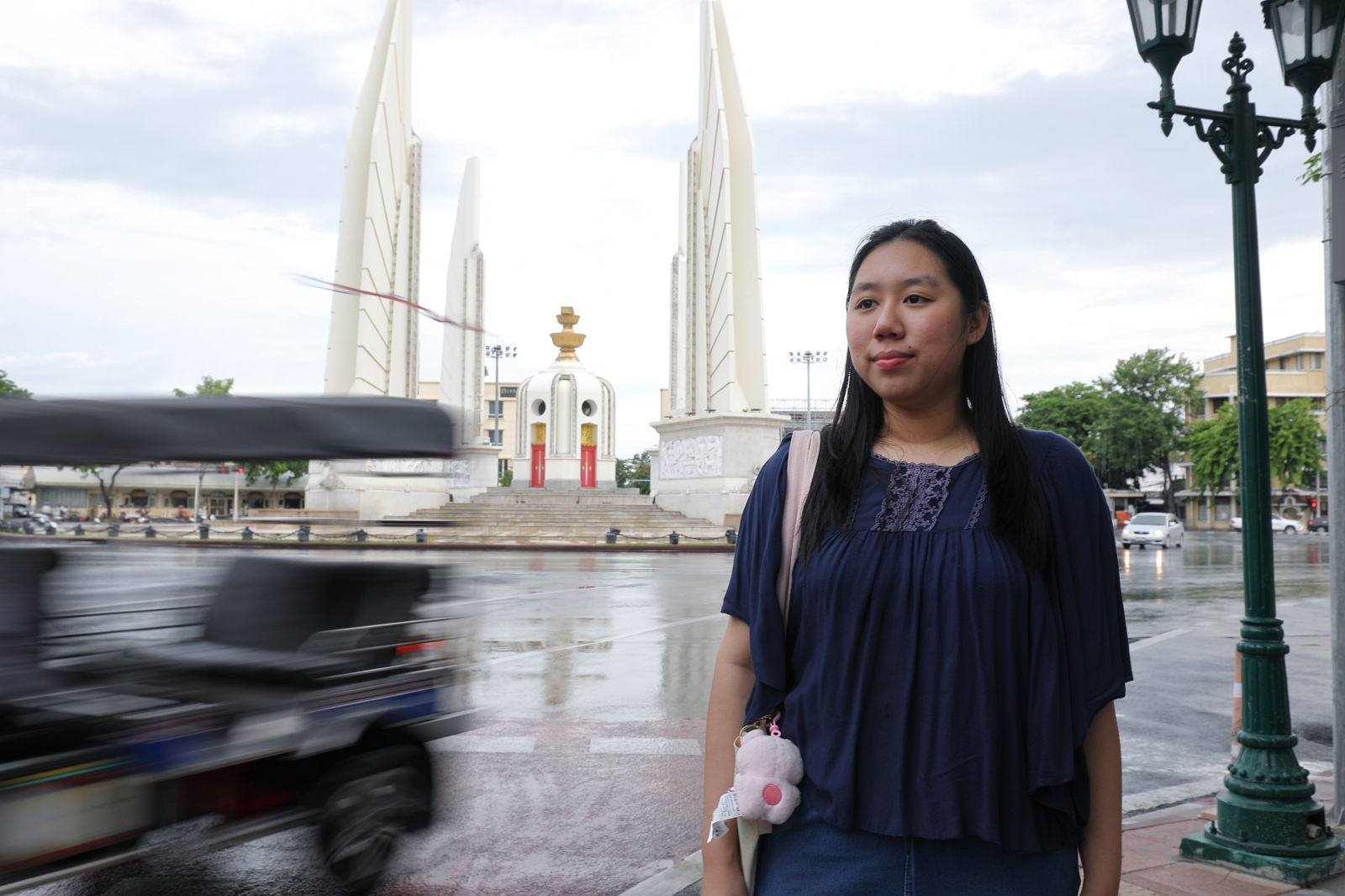Influx of Chinese capital and expatriates transforms Bangkok streets

Source:Chien-Tong Wang
As the West leans away from China, supply chain shifts have largely benefited nations in Southeast Asia, with Vietnam leading the pack followed by Thailand. CommonWealth Magazine’s recent visit to Bangkok revealed this balance in conversations with four generations of Thai-Chinese citizens.
Views
Influx of Chinese capital and expatriates transforms Bangkok streets
By Kwangyin LiuFrom CommonWealth Magazine (vol. 784 )
Historically, Thailand, the only Southeast Asian nation that was never colonized, has excelled at maintaining a balance between global superpowers. While local entrepreneurs profit from the surge in Chinese investments, there's also a visible influx of Chinese expatriates. Bangkok streets now echo this trend, with a noticeable presence of Chinese hotpot eateries.
Chinese Investments Dominate Thai Landscape
About an hour's drive east of Bangkok, in Chonburi province, massive construction is underway. The upcoming "Taipei Smart City" reception center is emblematic of the larger Asian integration happening in the region. Besides Taipei, there are plans for smart cities projects in collaboration with Japan, Korea, the EU, and China.
Vikrom Kromadit, CEO of Amata Corporation, studied at National Taiwan University 50 years ago. He is now spearheading the development of the world's largest Chinese business park outside China.
 Vikrom Kromadit, CEO of Amata Corporation. (Source: Ming-Tang Huang)
Vikrom Kromadit, CEO of Amata Corporation. (Source: Ming-Tang Huang)
Balancing Interests Amid Rising Chinese Influence
In the face of pressures from Western clients distancing themselves from China, companies from Taiwan, Japan, South Korea, and China are keen to relocate their production bases to continue business.
The robust growth of Kromadit's ventures aligns with data from the Economist Intelligence Unit (EIU). From 2019 to mid-2023, Chinese corporations led in investment promotion applications in Thailand, surpassing the combined contributions of Japan and Singapore.
This trend shows no signs of abating. Recent statistics from the Thailand Board of Investment show a 70% increase in investment deductions in the first half of the year, with China contributing 16.9%, followed by Singapore at 16.1% and Japan in third.
Thailand has greatly benefited from the global supply chain's shift away from China, according to EIU. The close relations between Thailand and China put the former in a prime position to continue reaping these benefits.
A Generational View of Chinese Influence
 Preme Chinpattanakul (Source: Chien-Tong Wang)
Preme Chinpattanakul (Source: Chien-Tong Wang)
For 60-year-old Somchai Kwangtongpanich, a second-generation Teochew immigrant, the rapid transformation of Bangkok's traditional Chinatown brings mixed emotions.
However, younger Thai-Chinese individuals like 21-year-old Preme Chinpattanakul have a more liberal perspective. Educated in California, she is more receptive to the ideals of democracy and freedom of speech.
Outside Bangkok's historic Chinatown, the Huai Khwang district now resembles a second-tier Chinese city, bustling with hot pot restaurants and popular Chinese food brands. Many signs are in Chinese only, and WeChat pay is widely used.
 Adam Chen (Left3). (Source: Chien-Tong Wang)
Adam Chen (Left3). (Source: Chien-Tong Wang)
Adam Chen, originally from Henan and in his 30s, acts as a guide, navigating the narrow pathways like a local. A decade ago, the Huai Khwang area transformed into a "New Chinatown", just two metro stops from the Chinese embassy, becoming a hotspot for Chinese expatriates.
A former editor in Shanghai, Chen decided to relocate after experiencing tightened free speech during the city's lockdown. Joined by his Thai girlfriend, they moved to Bangkok last September, starting a café and offering travel and immigration advice. "Many of my friends back home want to come out," he says. He recently purchased a home in Bangkok, signalling a long-term commitment.
The influx of new Chinese immigrants like him is growing. In 2022, Thailand saw over 110,000 Chinese nationals extending their stays, a 50% increase from the previous year, returning to pre-pandemic levels.
Thailand's Diplomatic Balancing Act
Following recent elections, Srettha Thavisin, a 61-year-old real estate mogul, was appointed Thailand's new Prime Minister. Thavisin, during his first month in office, reaffirmed Thailand's neutral stance, emphasizing the country's openness to all foreign investments.
As China and the U.S. compete for influence in Southeast Asia, Thailand, ever pragmatic, will likely continue to sway between these superpowers, ensuring its growth and maintaining its unique standing in the region.
Night view in Bangkok. (Source: Chien-Tong Wang)
Have you read?
- "Five years on, ASEAN a winner in U.S.-China trade war
- The Truth Behind Vietnam’s Friendshoring
- Singapore deputy PM: Extreme de-risking could leave Taiwan and Singapore worse off
Uploaded by Ian Huang






